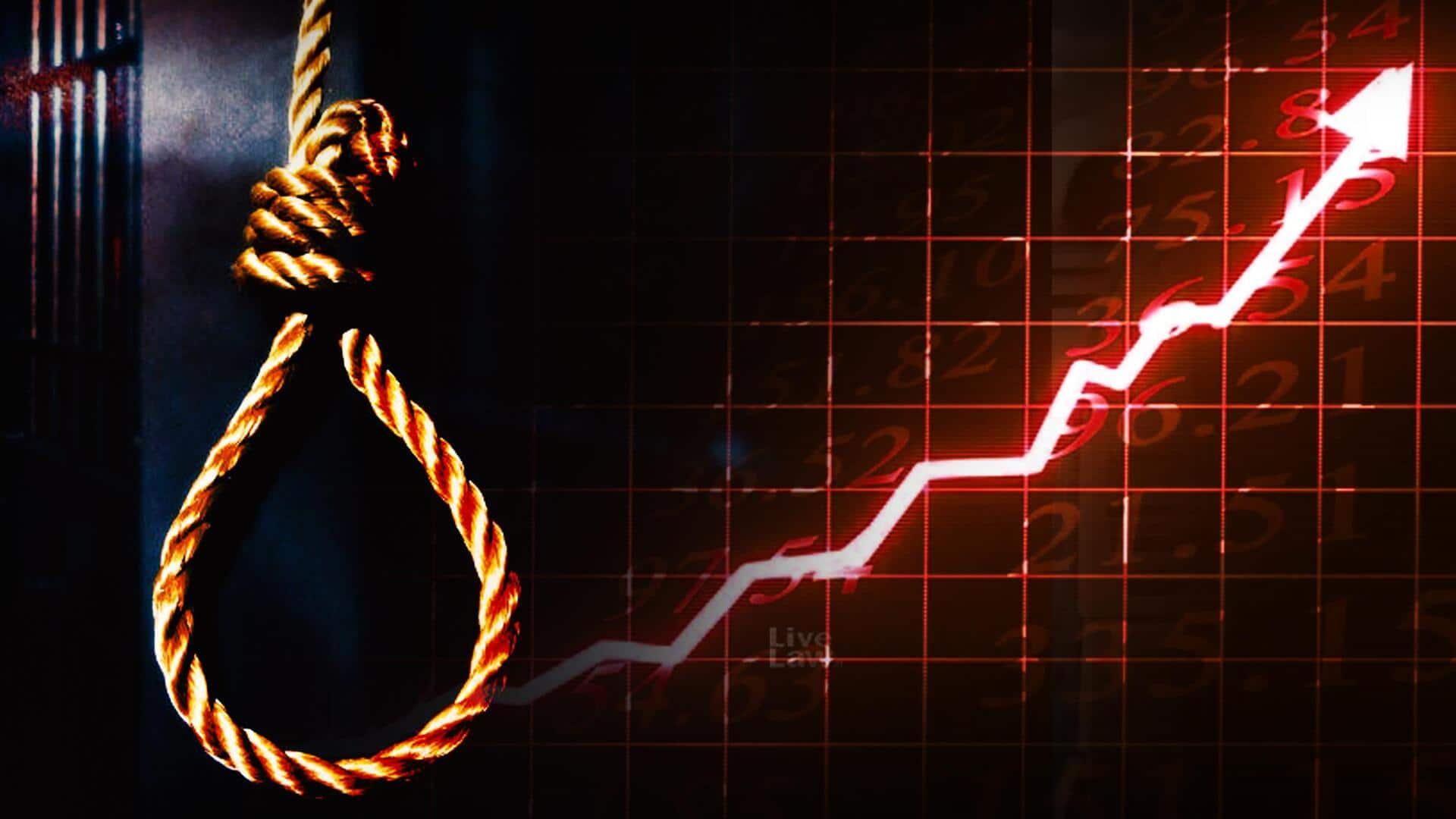
Student suicides in India outpace population growth, overall suicide trends
What's the story
A recent report titled "Student suicides: An epidemic sweeping India," has revealed a disturbing trend of student suicides in the country. The study, based on data from the National Crime Records Bureau (NCRB), was presented at the Annual IC3 Conference and Expo 2024. It indicates that student suicides have been increasing at an annual rate of 4%, which is double the national average and surpasses both population growth rates and overall suicide trends.
Demographic details
Gender disparity in student suicides
The report also highlighted a gender disparity in student suicides. In 2022, male students accounted for 53% of the total student suicides. However, between 2021 and 2022, male student suicides decreased by 6% while female student suicides saw an increase of 7%. Over the last decade, despite a slight decrease in the population of individuals aged between zero and 24 years (from 582 million to 581 million), student suicides nearly doubled from 6,654 to a staggering figure of over 13 thousand.
Regional statistics
Maharashtra, Tamil Nadu, Madhya Pradesh report highest student suicides
The IC3 Institute's report identified Maharashtra, Tamil Nadu, and Madhya Pradesh as the states with the highest number of student suicides. These three states alone accounted for one-third of the national total. Southern states and union territories collectively contributed to 29% of these cases. Rajasthan, known for its high-stakes academic environment and coaching hubs like Kota, ranked tenth in terms of student suicide cases.
Reporting challenges
Underreporting of student suicides due to social stigma
The report also addressed the issue of underreporting in student suicides, attributing it to social stigma and legal implications. Despite the 2017 Mental Healthcare Act decriminalizing suicide attempts for individuals with mental illness, the legacy of criminalization under Section 309 of the Indian Penal Code continues to impact reporting practices. The report further highlighted data discrepancies due to inconsistent reporting in rural areas compared to urban regions.
Call to action
Urgent need to address mental health challenges in schools
Ganesh Kohli, the Founder of the IC3 Movement, emphasized the urgent need to address mental health challenges within learning institutions. He advocated for a shift in educational focus from competition to supporting students' overall well-being and nurturing their core competencies. The report underscored this need by revealing a dramatic increase in student suicides over the past decade, with male suicides rising by 50% and female suicides by 61%.